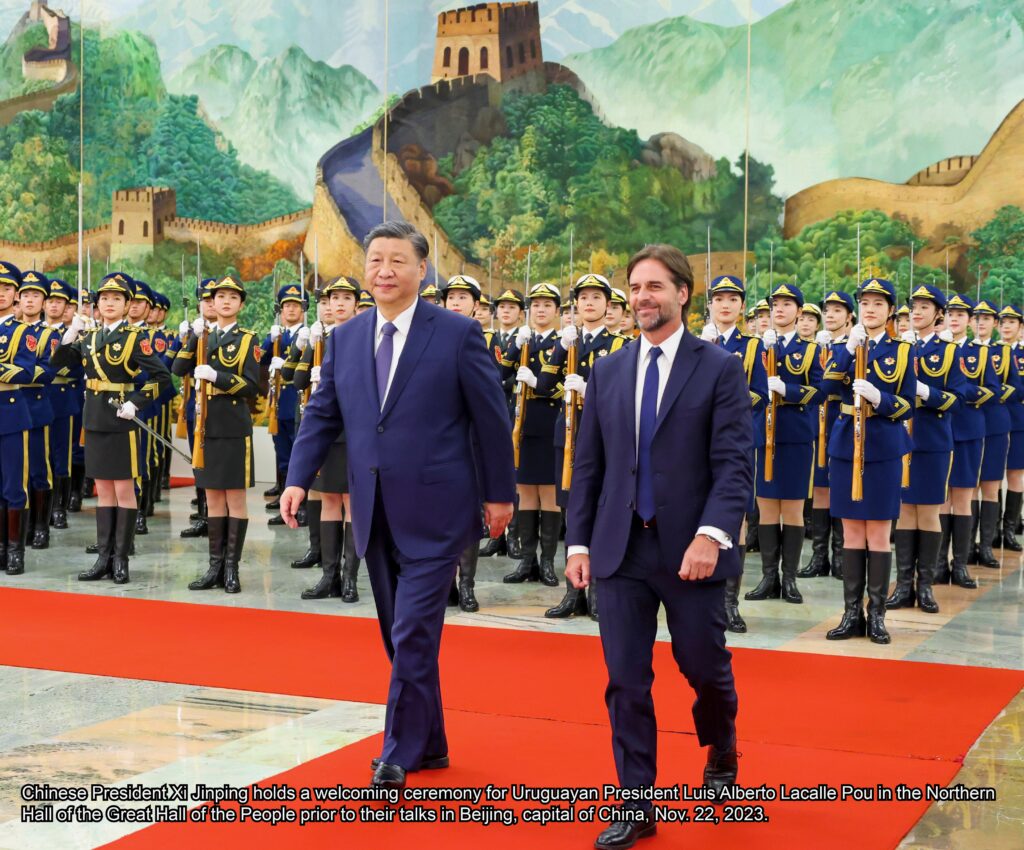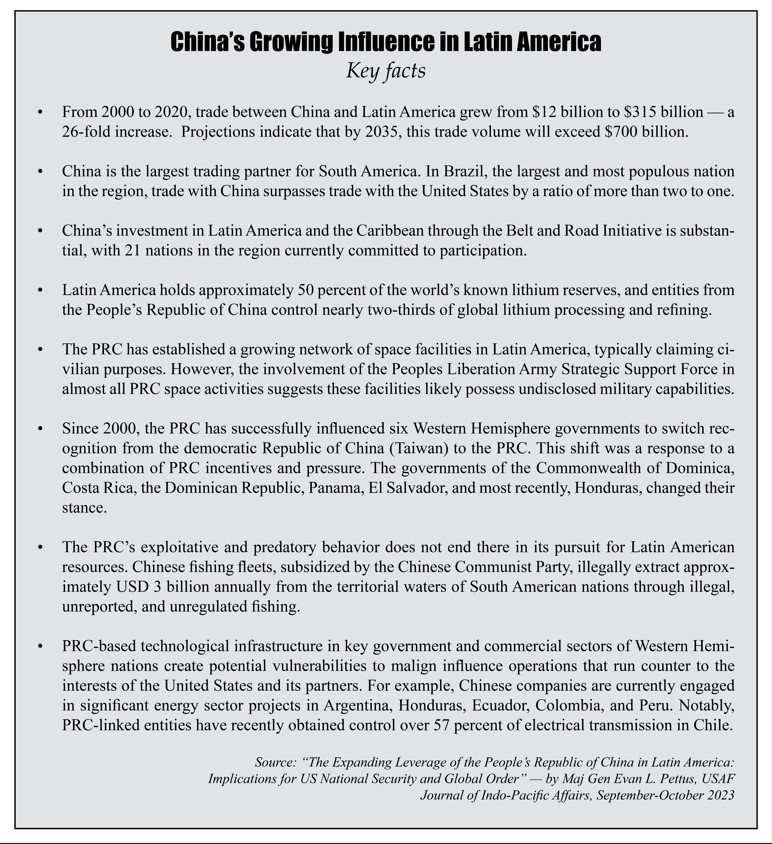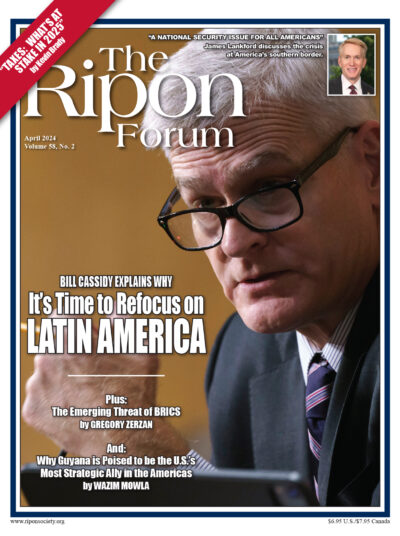
The United States has lost its focus when it comes to Latin America. There is economic instability across the region; jobs are moving to Asia, and China is making both military and economic inroads in countries that were closely aligned with the U.S. not long ago.
To reverse this, I and others have a proposal that will strengthen ties across the Western Hemisphere and, in so doing, confront the Chinese Communist Party’s (CCP) growing global influence.
The U.S. is currently stuck in a cycle in which every new administration comes into office declaring they will focus on the hemisphere, typically reversing the previous administration’s policies, and then becoming distracted by world events. The result is an incoherent and inconsistent U.S. policy that ultimately neglects our hemisphere.
The Americas Act, which I introduced with Senator Michael Bennet (D-CO), Congresswoman María Salazar (R-FL-27), and Congressman Adriano Espaillat (D-NY-13), creates a manufacturing alternative to cheap Chinese production and promotes economic stability in the Western Hemisphere through strengthening trade and economic ties. It aims to build an ever-expanding and permanent trade partnership of Western Hemisphere countries.

China is making both military and economic inroads in countries that were closely aligned with the U.S. not long ago.
There are four pillars to our proposal that each help support the others. The first pillar is to address endemic corruption. The Americas Act does this through an E-governance system patterned after what other countries have successfully done. The system would ensure that businesses operating in our hemisphere are registered and paying taxes. Informal markets and businesses that rely on bribery to function ultimately inhibit foreign direct investment due to the increased risk. Encouraging companies to enter the formal economy not only reassures multinational investors and businesses but also increases the tax base for a country. This additional tax revenue can then be used to invest in human and physical capital, all of which promotes the next pillar.
The second pillar builds on this by expanding U.S. loan authority to allow higher-income countries in the hemisphere, like Chile, to benefit from U.S. loans that are typically reserved for developing countries. Currently, the U.S. has nothing to counter with when China approaches Latin American countries with blandishments of loans. With expanded authority, U.S.-financed programs offer an alternative to the debt diplomacy practiced by the CCP. The E-governance pillar and increased foreign direct investment lead to the next pillar, which is expanded trade opportunities.
A country’s rise and fall is based upon the robustness of its trade. The Americas Act expands opportunities for countries looking to build stronger trade partnerships within the Western Hemisphere while reducing their reliance on Chinese manufacturing. It incentivizes companies to return to the U.S. and neighboring countries, bringing jobs back with them and creating new ones in the process.
A country’s rise and fall is based upon the robustness of its trade. The Americas Act expands opportunities for countries looking to build stronger trade partnerships within the Western Hemisphere while reducing their reliance on Chinese manufacturing.
The last pillar of The Americas Act is the investment in people-to-people partnerships. As there is more foreign direct investment with expanded trade opportunities, there will naturally be an incentive for more cultural exchange, such as the new American University of the Americas, investments in English language programs, and the expansion of non-immigrant visas for elderly and family care. Bringing the populations of our countries closer together is foundational in building lasting partnerships.
All four of these pillars serve two key purposes: building a stronger, self-sufficient hemisphere and countering China.
There is a nexus between China’s ability to fund its military and its economic growth through expansion of unfair trade. As China’s economy has grown stronger, jobs have steadily moved to their shores, and it has increasingly capitalized on its trade imbalances with unsuspecting countries to acquire foreign exchange. That foreign exchange, in turn, enables them to strengthen their military.
Our legislation makes the U.S. competitive again by creating the only viable alternative to a Latin America ensnared by the CCP — a self-sufficient Western Hemisphere that is dedicated to economic prosperity, democracy, and the rule of law.
We have an opportunity to reset the collision course the U.S. and the CCP are gliding down. We have a group of lawmakers from both parties and from both chambers of Congress dedicated to reprioritizing Latin America and besting China. This is the reason former House Select Committee on the CCP Chairman Mike Gallagher (R-WI-08) endorsed the bill.
The Americas Act’s vision for our hemisphere is in stark contrast to the CCP’s ambitions because it is rooted in the advancement of liberty and the expansion of democracy. People are most free when they decide who leads them. And for democracy to flourish, there must be liberty and prosperity. The Americas Act promotes all three.
The U.S. has waited too long to start paying attention to our own neighborhood again. Attempts to thwart the CCP’s expansion are only a part of the solution. We need to create an alternative to unchecked Chinese growth. A strong Western Hemisphere is part of the solution.
Bill Cassidy serves as the senior United States Senator from the State of Louisiana.





